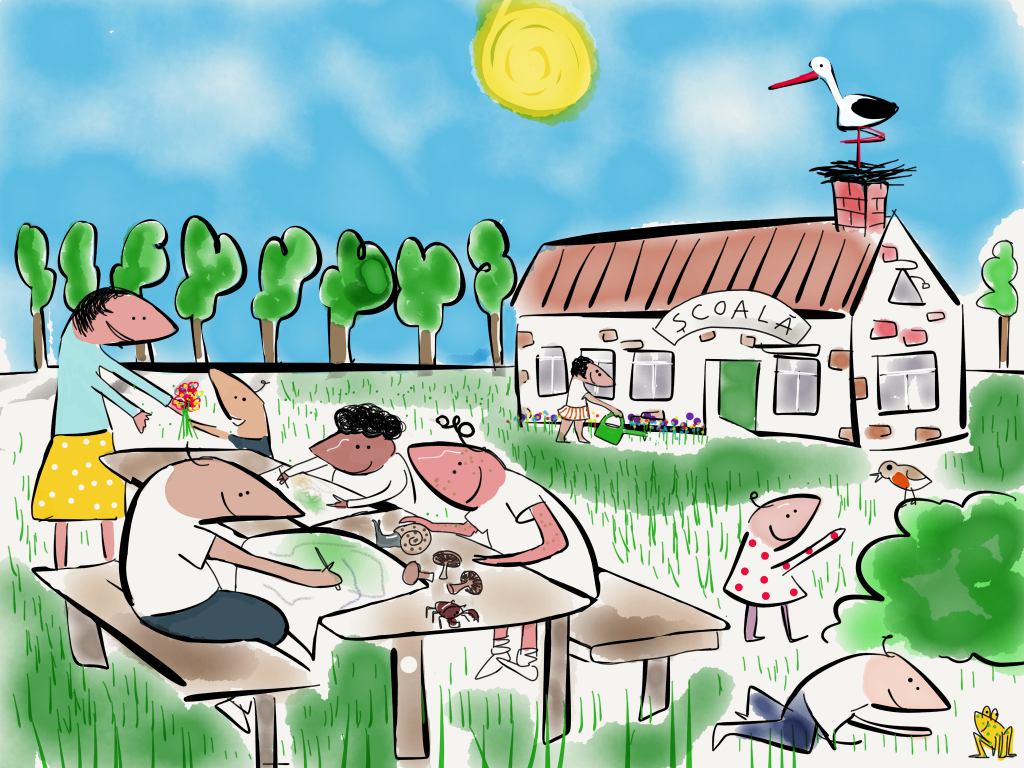Resilience needs diversity: diversity means that if one bit of a system goes wrong, other bits, unaffected, can carry on and make up for local failure. Creativity needs diversity, too: as in the case of evolution, you need to try out lots and lots of new things before you eventually stumble on an innovation that works better.
Thus protecting the good things we have and improving on what we have, both need diversity. The nice thing about diversity is that it allows for change and improvement without needing a boom and bust model. Diversity is the bedrock of wholesome, steady, iterative improvement. It prevents boom and bust or slash and burn, where things get really successful then fizzle out and get replaced.
This is something that environmentalists and ecologists have known for ages.
It is also something that traders and investors have known for ages. Diversity your portfolio and you can make the same returns for lower risk.
And sociologists are up on it, too: an admixture of various cultures helps strengthen a society.
Now, what is the one of the most important things we have in society, that ensures that the very fundament of our civilisation keeps going. Education and schooling.
Ouch. National curriculum. Indoctrinated teaching inspectors. Centralised dictats and feverish form-filling. Evaluation and motivation by a single system of statistical rating. This is the complete antithesis of diversity. It means that our education system is bound to fail in its purpose.
A resilient and creative education system capable of raising children to form a vibrant and sound new generation must be diverse. It must allow for failure. Creativity and success can only happen if you also allow for failure. It must allow for experiment. It must welcome thoughtful innovation. It must cherish independence in thought and processes.
Everyone knows that our society is very troubled. Massive social problems need massive creativity and originality to solve them. From the point of view of the Bustard, man’s relationship with nature is one of those areas where work is needed. For that we need to free our education system. We need to choose and train our teachers superbly and then trust them.
If the implication of this is that parents must be free to send their children to any school, so be it. It becomes our responsibility, then, to educate our parents well, too, and hold them to high standards. Let’s not make the rule for the exceptions – let’s treat everyone as if they can handle that, and then help those that can’t.
It will take a couple of generations of great pain to bring about the cultural shift to make this happen. But if we don’t, our schools will become more and more mediocre and less able to raise children to handle the mess we have put them into.


Ha! love the drawing. Anyway, diversity….and education. Totally agree on education, my particular beef being that it squeezes any creativity out of our children. You start at the age of 5-7, drawing and painting a lot, composing stories where your imagination can have free flow. You end at university reproducing academics’ arguments and discussing them a bit.
The diversity of various cultures DO strengthen a society – but often at the cost of the culture that was there before that mix happened, and we need to think about how much we value that. DO we want a MacDonalds culture in every country in Europe, or do we want to feel that we have different cultures across Europe, that it feels different being in Hungary compared to Britain, because of language, dress, art, dress, buildings, music etc etc. Of course the worst manifestation of this is the High Street…where they are pretty much the same from Cologne to Colchester. That’s globalisation’s benefits for you baby!
Try Shrewsbury. Diverse highstreet not yet totally dominated by crap stores. Well, still lots of crap stores but there are also still some nice shops.
Yes…and no! Since when did freedom guarantee diversity? Precisely take a look at the trashing of high-streets and the total market dominance of a few banks and corporations with the power to stymie the very creativity you espouse. What is needed is perhaps for less of the state micro-management and reporting (tests and Ofsted examinations), and an embracing of pluralism (more freedom to faith-based schools, home schooling, Steiner-style, outdoor schools?). But perhaps some stronger macro-management to prevent all schools becoming sponsored by Microsoft, Esso, HSBC or Google.